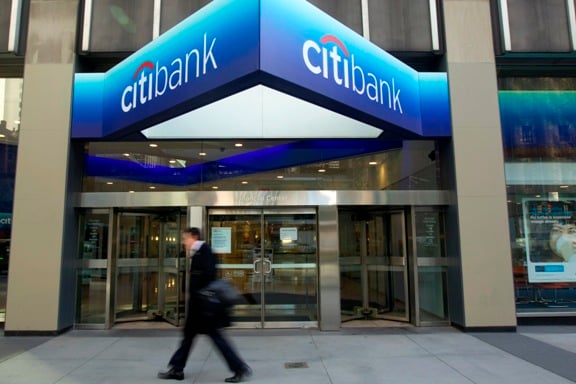Citigroup Inc. and the U.S. Securities and Exchange Commission won a delay in the trial of a lawsuit the agency brought against the bank while an appeals court considers a judge's refusal to approve their $285 million settlement.
Citigroup Inc. and the U.S. Securities and Exchange Commission won a delay in the trial of a lawsuit the agency brought against the bank while an appeals court considers a judge's refusal to approve their $285 million settlement.
In November, U.S. District Judge Jed Rakoff declined to approve the accord resolving claims that New York-based Citigroup, the third-biggest U.S. bank, misled investors in a $1 billion financial product linked to risky mortgages. He ordered them to go to trial, which was scheduled for July 16.
“The SEC and Citigroup have made a strong showing of likelihood of success in setting aside the district court's rejection of their settlement,” the court wrote.
In his decision, Rakoff criticized the agency's practice of settling without requiring the subject of the allegations to admit wrongdoing, and said the proposed pact was “neither fair, nor reasonable, nor adequate, nor in the public interest.” The agreement didn't provide him with “any proven or admitted facts” to inform his judgment, he said.
Rakoff didn't immediately return a call seeking comment on the appeals-court ruling. Danielle Romero-Apsilos, a Citigroup spokeswoman, said the company was pleased with the appeals court's ruling.
‘Preserves Resources'
“We agree to settlements when the terms reflect what we reasonably believe we could obtain if we prevailed at trial, without the risk of delay and uncertainty that comes with litigation,” Robert Khuzami, director of the SEC's enforcement division, said in a statement today. “This settlement approach preserves resources that we can use to stop other frauds and protect other victims.”
In December, the appeals court halted the lower-court proceedings until it made the ruling it did today.
The appeals court said today that while it found likelihood of success on the appeal for the purposes of halting the lower- court proceedings, that didn't mean the panel that hears the merits of the case will do so.
The three-judge panel said the case raises questions about responsibilities allocated between the federal government's executive and judicial branches and the deference a judge must give to an agency's policy decisions.
Rakoff's complaint that the bank didn't admit liability “prejudges the fact that Citigroup had in fact misled investors” and assumes the SEC would prove that at a trial, the court wrote.
‘No Precedent'
“We know of no precedent that supports the proposition that a settlement will not be found to be fair, adequate, reasonable, or in the public interest unless liability has been conceded or proved,” it said.
Many factors come into deciding whether to go to trial, including the likelihood of getting a better deal in a settlement and the expense of a trial, the court said.
“Based on our preliminary review, and noting that the settlement called for payment by Citigroup of $285 million, which would be available for compensation of investors who lost money, we see no basis to doubt that the SEC's decision was made in consideration of all those factors,” it wrote.
The court said Rakoff found both that the settlement amount was “pocket change” and that it was unfair to Citigroup because it imposed “substantial relief on the basis of mere allegations.”
The appeals court said Rakoff had a “substantial evidentiary record amassed by the SEC over its lengthy investigation” on which to base his decision.
Judge as Adversary
The appeals court said that because the two parties agree the settlement should be approved, the adversary is essentially Rakoff. The panel said a lawyer will be appointed to take his position when it hears full argument on the issue of the settlement.
Rakoff, a former federal prosecutor and civil litigator, has previously criticized the SEC's practice of allowing financial institutions to settle enforcement actions without admitting or denying the agency's allegations. In 2009, he rejected a $33 million agreement between the SEC and Bank of America Corp. Rakoff “reluctantly” approved a $150 million accord in that case in February 2010.
--Bloomberg News--







